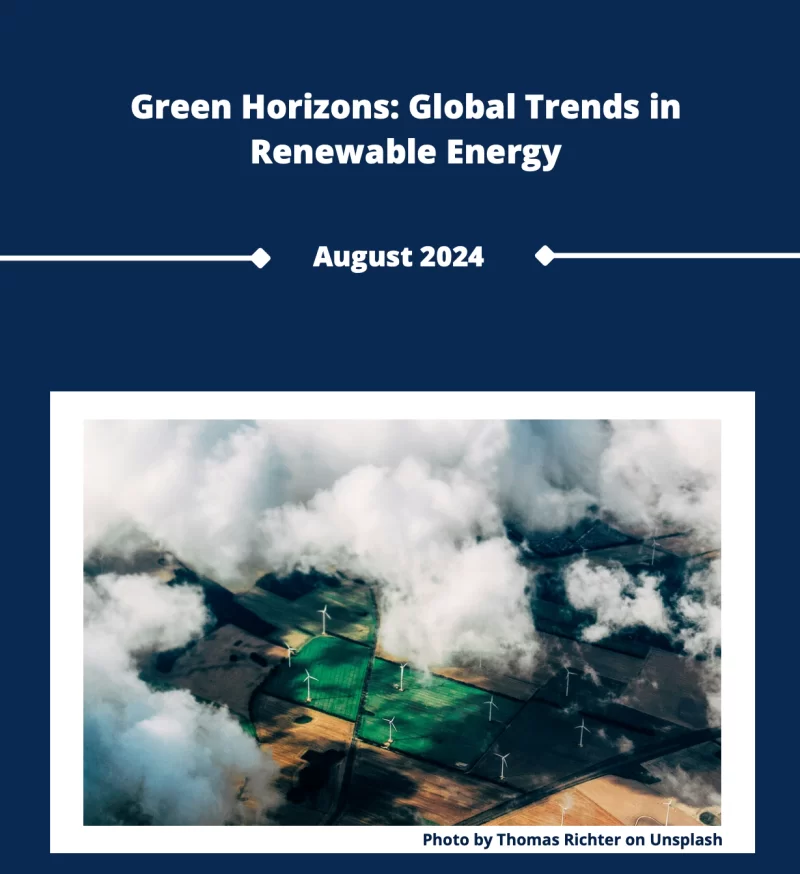
Introduction
As nations seek to address the pressing challenges of climate change, energy security, and economic stability, the global energy landscape is undergoing profound change. Indeed, determining geopolitical events such as the Russian-Ukrainian war, the Israeli conflict, and related humanitarian crises have made it more urgent than ever for governments to move away from fossil fuels and more generally to develop a more sustainable energy system. In particular, in this necessary transition, renewable energies are leading the way, offering a sustainable alternative to fossil fuels and playing a crucial role in mitigating environmental impacts. Specifically, according to the International Energy Agency (IEA), the use of renewable energy in the electricity, heat, and transport sectors is one of the key factors in achieving the goal of limiting the global temperature increase to 1.5 degrees. In concrete terms, according to the 'Net Zero Emissions' scenario by 2050, renewable energies allow electricity production to be almost completely decarbonized, while renewable transport fuels and renewable heat contribute to significant emission reductions in the respective sectors. Consequently, by examining the policies, interventions, and market dynamics driving the promotion of renewable energy, this report provides a comprehensive overview of the evolution of the global energy sector, as IEA forecasts state that for the first time, global demand for the main fossil fuels - coal, oil and gas - will peak by 2030 due to active policies, indicating a clear paradigm shift in the energy sector. Consequently, this study focuses on global renewable energy trends driven by international initiatives over the years, with particular emphasis on European Union renewable energy policies and the corresponding EU energy/electricity mix. The report begins with an examination of the definition and different types of renewable energy sources. It then looks at the evolution of global cooperation on renewable energy policies, from the Kyoto Protocol to the recent COP28 resolution, to better understand the impact of these policies in shaping the role of renewables in the global energy mix. Furthermore, the paper focuses on the study of the European Union's renewable energy policy, tracing its evolution over the years, from the 2009 Renewable Energy Directive to the revision of RED II in 2023. This historical overview provides a critical understanding of the current policy landscape and its impact on the EU's energy and electricity mix. Finally, the report highlights the opportunities and challenges in this evolving landscape and emphasizes the need for industry to adapt rapidly to the changing energy dynamics. Particular attention is given to innovation to help decarbonise hard-to-decarbonise sectors, such as heavy industry. To meet global climate goals and ensure energy security for all, the global community needs new investment in energy efficiency, renewables, electricity grids, and above all innovative technologies such as floating offshore wind farms, and low-carbon hydrogen, as these are increasingly seen as fundamental. Ultimately, this report aims to highlight the opportunities and challenges of the changing energy landscape, highlighting the imperative for administrations to swiftly respond to the new energy dynamics required.
Read the entire file!
Cookies are used on this site to improve the user experience.
By clicking on one of the links, you accept the use of cookies.